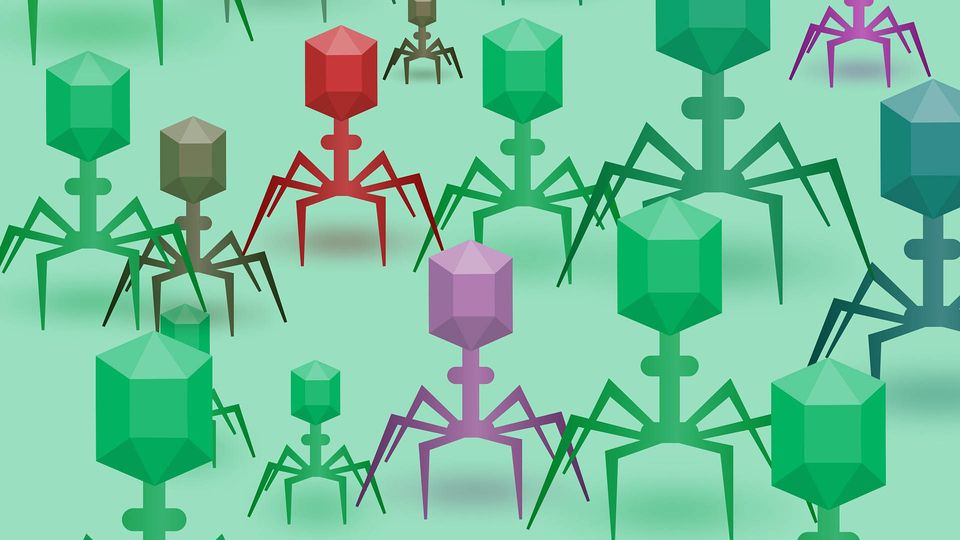Mammalian Cells Eat Bacteria-Killing Viruses To Survive
Phages can be seen as far more than “bacterial killing machines”.

Complete the form below to unlock access to ALL audio articles.
Viruses that can infect and kill bacteria have recently emerged as a therapeutic option for the treatment of particular infections. However, a recent study from Monash University, published in PLoS Biology, has revealed that they may also provide a symbiotic benefit to mammalian cells, promoting cellular growth and survival.
Bacteriophages and human health
These viruses, called bacteriophages, infect and inject their genetic material into a bacterial cell’s cytoplasm to hijack their cellular machinery and replicate. Yet these phages can be seen as far more than “bacterial killing machines”. From a macromolecular point of view, bacteriophages are compact nutritional nucleotide treats wrapped up in an amino acid shell.
Bacteriophages and their interactions with bacteria have been well-documented in the past, although their direct impact on mammalian cells and immunological processes is less understood. Dr. Jeremy Barr, an associate professor in the School of Biological Sciences at Monash University, and his colleagues proposed these cells may be internalizing the phages as a resource to aid both cellular growth and survival.
Technology Networks’ Junior Science Editor Rhianna-lily Smith spoke with Dr. Jeremy Barr in an exclusive interview to discuss the practical implications of their research and how it might influence the development and application of phage therapy. Credit: Technology Networks.
Mammalian cellular response
The researchers used in vitro analysis to apply the well-studied phage T4 to mammalian cells, and investigated the cellular responses through luciferase reporter and antibody microarray assays. The purified T4 phages were rapidly internalized by the mammalian cells and consequently accumulated within macropinosomes. While the phages initiated a sequential series of signaling events that ultimately bolstered cellular growth and viability, involving pathways dependent on AKT (protein kinase B) and the suppression of CDK1 (Cyclin-dependent kinase 1), they did not trigger DNA-mediated inflammatory response pathways.
Want more breaking news?
Subscribe to Technology Networks’ daily newsletter, delivering breaking science news straight to your inbox every day.
Subscribe for FREEBacteriophages have additional benefits
Barr and colleagues’ results provide evidence that bacteriophages do support the growth and survival of mammalian cells through various signaling pathways. Barr said, “This preliminary study provides novel insights into the impact phages have on mammalian systems, with broader potential implications across the fields of immunology, phage therapy, microbiome and human health.”
He added, “This is of particular importance given the increased use of phage therapy to treat antibiotic-resistant infections.”
Additional investigations are required to evaluate various phage types and morphologies, exploring their potential to promote non-inflammatory pathways versus inflammatory pathways in mammalian cells.
Reference: Bichet MC, Adderley J, Avellaneda-Franco L, Magnin-Bougma I, Torriero-Smith N, Gearing LJ, et al. (2023) Mammalian cells internalize bacteriophages and use them as a resource to enhance cellular growth and survival. PLoS Biol 21(10): e3002341. doi: 10.1371/journal.pbio.3002341
This article is a rework of a press release issued by PLOS.

